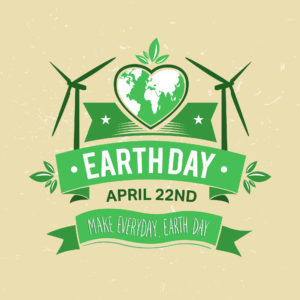With climate change on the upswing and even dogs needing to worry about exposure to toxic chemicals, I’ve come up with five things I’d ask Mother Nature for this Earth Day 2008 if I believed wishes really came true.
* President Bush signs a bill that will cut U.S. greenhouse gases 50% – starting tomorrow. Such bold action would help the U.S. meet recommendations issued by the U.N. Intergovernmental Panel on Climate Change and many world leaders that America, one of the globe’s largest carbon polluters, reduce its energy emissions significantly in order to avert drastic global warming. In reality, of course, last week, the President once again called only for voluntary actions that have virtually no chance of reducing the country’s carbon footprint even by 2025 – the President’s own date.
• Wal-Mart Urges Shoppers To Buy 20% Less. As the world’s largest retailer, Wal-Mart is the scene of more shopping – and consequently the engine behind more resource consumption — than any other emporium on the planet. The company does a great job offering consumers organic produce, organic cotton clothes, and concentrated packages that reduce waste. But what if Wal-Mart actually encouraged customers to ask “Do I need it?” before saying “I’m going to buy it”? The impact on the environment could be world changing; consumer pocketbooks would benefit; and Wal-Mart’s own image would improve. In reality, the company intends to open more stores, not fewer, and there are no plans to tell consumers to cut back.
• Coal-fired power planets convert to solar energy. Burning coal not only contributes to climate change; power plants fueled by coal also emit the mercury that is polluting lakes and oceans, rendering fish unsafe to eat and endangering the well-being of pregnant women who eat those fish . We could solve a whole host of environmental problems if we stopped burning coal and switched to solar, wind, biomass, and other renewable fuels. The reality, of course, is that utilities are trying to build new coal operations in many parts of the U.S. and a new coal plant is coming on line in China every week. Though solar technology is expanding, it’s not happening at nearly the pace needed to displace significant coal generation any time soon.
• Congress earmarks $1 billion to help farmers go organic. Talk to any farmer and the major obstacle to transitioning to pesticide-free agriculture is the cost of the certification required to meet Department of Agriculture organic standards. Representatives and Senators never seem to find any funds to help farmers take this important step – even though they fork over billions so conventional agribusiness can continue plying the fields with toxic pesticides and herbicides. How about a few bucks to help farmers really go green?
• Companies ban the use of all phthalates in everything. Phthalates are chemicals called “endocrine disruptors,” compounds that affect the hormones our endocrine glands release into our body to control reproduction, growth and fertility. Phthalates show up in all kinds of personal care products: perfume, air freshener, hair spray, and more. Most companies justify including these toxins by saying that the amount in their product alone doesn’t cause the problem. But because so many companies use phthalates, our cumulative exposure can actually be quite substantial. And when they wash into our water system, phthalates can affect animals, too – you’ve heard of male frogs and fish born with female sex organs? That’s the effect phthalates are having.
Actually, this wish may not be so far-fetched. Thanks to consumer demand for alternatives, Orly, OPI, and Sally Hansen, the country’s largest nail polish manufacturers, have promised to remove phthalates from their polish. That’s a good start. Now what about the other personal care products we use?
What’s your Earth Day wish? Let us know.

















